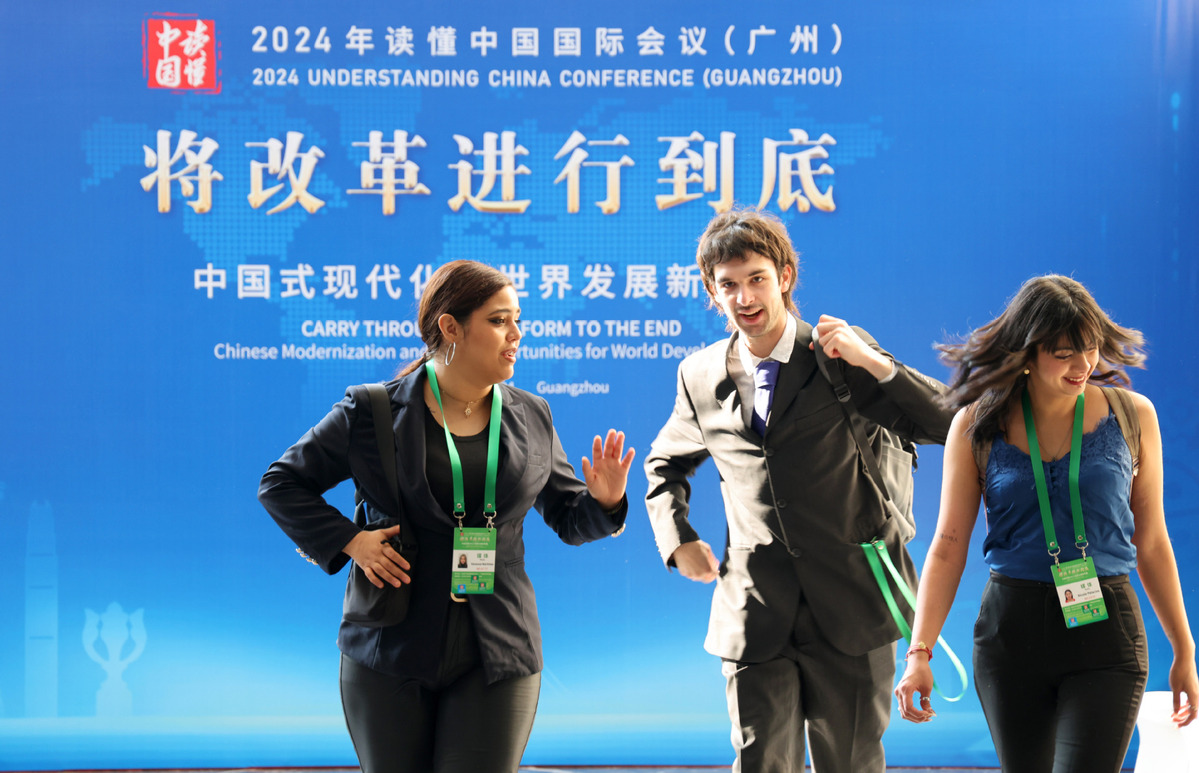Xi: Modernization bodes well for world

The Chinese path to modernization "meets the aspiration of 1.4 billion people for a better life and will make new and greater contributions to world peace and development", President Xi Jinping said on Tuesday.
He made the remark in a congratulatory letter sent to the two-day 2024 Understanding China Conference (Guangzhou), which opened on Tuesday in Guangzhou, Guangdong province.
The event, whose theme is "Carry Through the Reform to the End — Chinese Modernization and New Opportunities for World Development", was co-hosted by the China Institute for Innovation and Development Strategy, the Chinese People's Institute of Foreign Affairs and the Guangdong provincial government.
In his letter, Xi said that to understand China, one needs to understand China's efforts to further deepen reform comprehensively to advance Chinese modernization.
He also said China is gearing up its building of a high-standard socialist market economy and steadily expanding institutional opening-up.
In addition, China is "taking the initiative to align with high-standard international economic and trade rules, and actively fostering a transparent, stable and predictable institutional environment", he said.
Noting that changes unseen in a century are unfolding rapidly in today's world, Xi said countries around the world are faced with both new risks and challenges as well as new development opportunities and prospects.
China looks forward to working with various countries to create an enabling environment and conditions for development, and to actively tackle different difficulties and challenges, he said.
Furthermore, the nation looks to facilitate the modernization of various countries featuring peaceful development, mutually beneficial cooperation and common prosperity, and to write a new chapter in building a community with a shared future for mankind, he added.
At the conference, politicians, business executives, scholars and representatives of international organizations shared their views on how the Chinese path to modernization is relevant to the rest of the world, particularly the vast number of developing countries.
When reviewing China's growth over the past 40 years, Wolfgang Schussel, former chancellor of Austria, said, "This is a breathtaking success story — the development of a very poor country, big country, now the second-largest economy of the world."
He added that "this is a lesson to be learned for everybody, for us, for the developed world".
According to Schussel, understanding China means "first to listen, not to teach, but to listen "regarding the country's priorities, ideas, interests and concerns, as well as the opportunities and challenges faced by the nation.
Shahid Khaqan Abbasi, former prime minister of Pakistan, said China's rapid development has contributed to promoting global economic growth and global inclusive development.
He also noted that China has lifted 800 million people out of poverty in the past decades.
Mulatu Teshome, former president of Ethiopia, cited China's remarkable economic buildup in the previous four decades and said its development and prosperity provide myriad opportunities to developing countries.
The Belt and Road Initiative has not only built roads, ports and other infrastructure facilities in the countries participating in the BRI, but has also established long-term partnerships that benefit the economic development of the countries, he added.
